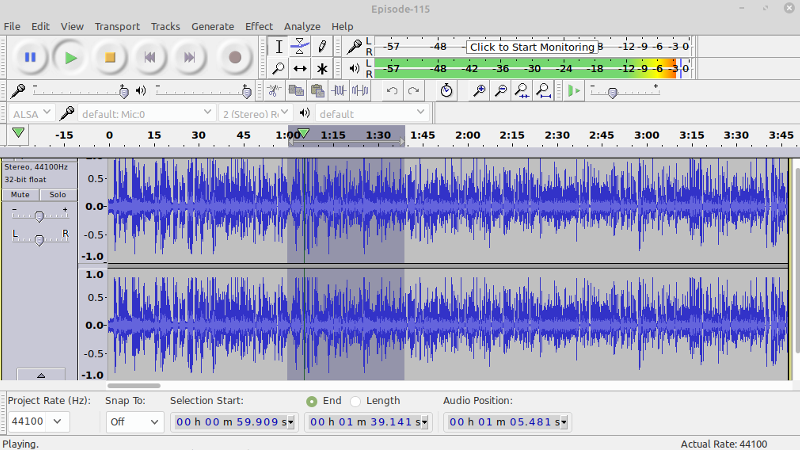Regular readers will likely be aware of the considerable debate over changes being made to the free and open source audio editor Audacity by the project’s new owners, Muse Group. The company says their goal is to modernize the 20 year old GPLv2 program and bring it to a larger audience, but many in the community have questioned whether the new managers really understand the free software ethos. An already precarious situation has only been made worse by a series of PR blunders Muse Group has made over the last several months.
But for a change, it seems things might be moving in the right direction. In a recent post to Audacity’s GitHub repository, Muse Group unveiled the revised version of their much maligned Privacy Policy. The announcement also came with an admission that many of the key elements from the draft version of the Privacy Policy were poorly worded and confusing. It seems much of the problem can be attributed to an over-analysis of the situation; with the company inserting provocative boilerplate protections (such as a clause saying users must be over the age of 13) that simply weren’t necessary.
Ultimately, the new Privacy Policy bears little resemblance to the earlier draft. Which objectively, is a good thing. But it’s still difficult to understand why Muse Group publicly posted such a poorly constructed version of the document in the first place. Project lead Martin Keary, better known online as Tantacrul, says the team had to consult with various legal teams before they could release the revised policy. That sounds reasonable enough, but why where these same teams not consulted before releasing such a spectacularly ill-conceived draft?
The new Privacy Policy makes it clear that Audacity won’t be collecting any user data, and what little personally identifiable information Muse Group gets from the application when it automatically checks for an update (namely, the client’s IP address) isn’t being stored. It’s further explained in the GitHub post that the automatic update feature only applies to official binary builds of Audacity, meaning it will be disabled for Linux users who install it through their distribution’s package repository. The clause about working with unnamed law enforcement agencies has been deleted, as has the particularly troubling age requirement.
Credit where credit is due. Muse Group promised to revise their plans for adding telemetry to Audacity, and judging by the new Privacy Policy, it seems they’ve done an admirable job of addressing all of the issues brought up by the community. Those worried their FOSS audio editor of choice would start spying on them can rest easy. Unfortunately the issue of Audacity’s inflammatory Contributor License Agreement (CLA) has yet to be resolved, meaning recently christened forks of the audio editor dedicated to preserving its GPLv2 lineage are unlikely to stand down anytime soon.
Source:: Hackaday

